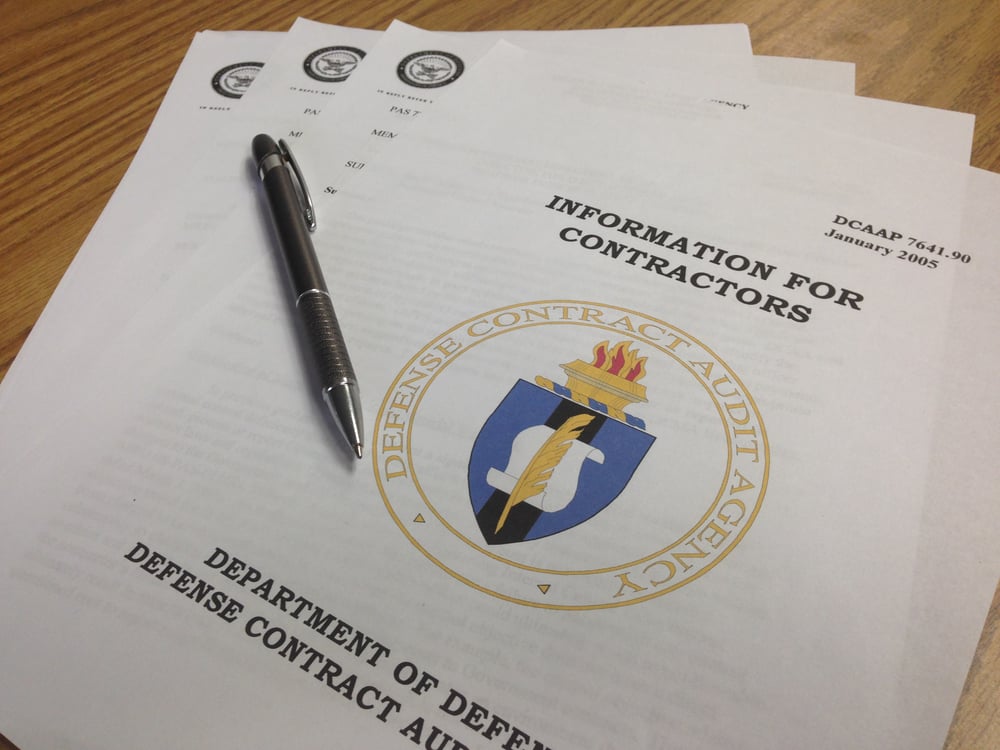
Typical DCAA Audits and What They Mean to Your Small Business
Pre-Award Audit
This type of audit is very common. It may not be as detailed as other DCAA audits and focuses on reviewing a contractor's accounting system to see if it has the capability to meet all of the FAR and DFARS (DFARS 252.242-7006) requirements for an Acceptable Accounting System. In this audit, the DCAA will typically require the contractor to fill out Standard Form SF1408 as a starting point. Then the DCAA will use this and review the accounting system to see that it has the features and capability to meet the FAR and DFARS requirements. It does not audit specific records and therefore is not usually lengthy. The DCAA will report their findings to the Contracting Officer and a passing grade will give the CO confidence to release the contract to this contractor. This is a very typical audit for a Phase II SBIR/STTR awardee, prior to issuance of the award.
Price Proposal Audit
The Contracting Officer is responsible for assuring the pricing on a proposed contract is fair and reasonable and therefore may request an audit of the pricing. If the contract is large enough to exceed the Truth In Negotiations Act (TINA) threshold (currently $2 Million) the contractor will have to submit pricing information along with the proposal but in other instances the CO may request this information and audit. The DCAA may request additional information supporting the basis of the pricing in the proposal. This is typically referred to as Basis of Estimate (BOE).
Billing System and Contract Cost Audit (Voucher Audit)
When the contract is cost based such as with a cost reimbursable contract, like a CPFF, or a cost based progress payment, such as a Fixed Price with Progress Payments, then the vouchers submitted on these contracts will be subject to periodic audit. The DCAA will verify that these costs are accurately recorded and traceable to the vouchers submitted. This will look into the accounting system to verify it is working properly.
Incurred Cost Proposal Audit
If the contractor has a cost reimbursable award, they will be required to submit an annual reconciliation of their actual costs, including all indirect costs. This is called the annual Incurred Cost Submission and is due 6 months after the end of the contractor's fiscal year. If this shows costs different from the costs in the billings during the last year, there will be an adjustment to assure the government pays actual costs, not forecasted costs. All Incurred Cost Submissions are subject to audit. In some cases the CO and/or the DCAA may determine a low risk and accept the submission without audit. It is relatively common that Phase II SBIR/STTR awardees are subject to this type of audit.
Accounting System Audit
An Accounting System Audit is a very detailed audit of the contractor's accounting system. It is designed to verify the operation of an acceptable accounting system by auditing a representative sample of records to verify proper operation of the accounting system. It is very typical that a Phase II SBIR/STTR awardee will see one of these audits during the performance of the Phase II.
Floor Check
This audit is usually an unannounced visit by the DCAA. They will ask to visit the workstation of several employees, picked at random, to verify they are using labor recording and timesheets properly. It also will verify that the contractor has procedures covering labor recording, the procedures are familiar to the employee and that employees are at their work station when performing work.
This is just a sampling of the typical DCAA audits that a small business might expect. Each audit is described in detail as to what is covered, what the auditor is looking for and how the audit is to be conducted. You can find that at the DCAA website by looking at the Audit plan in the "Directory of Audit Programs". You may also want to look in the DCAA Contract Audit Manual in preparation for the audit.